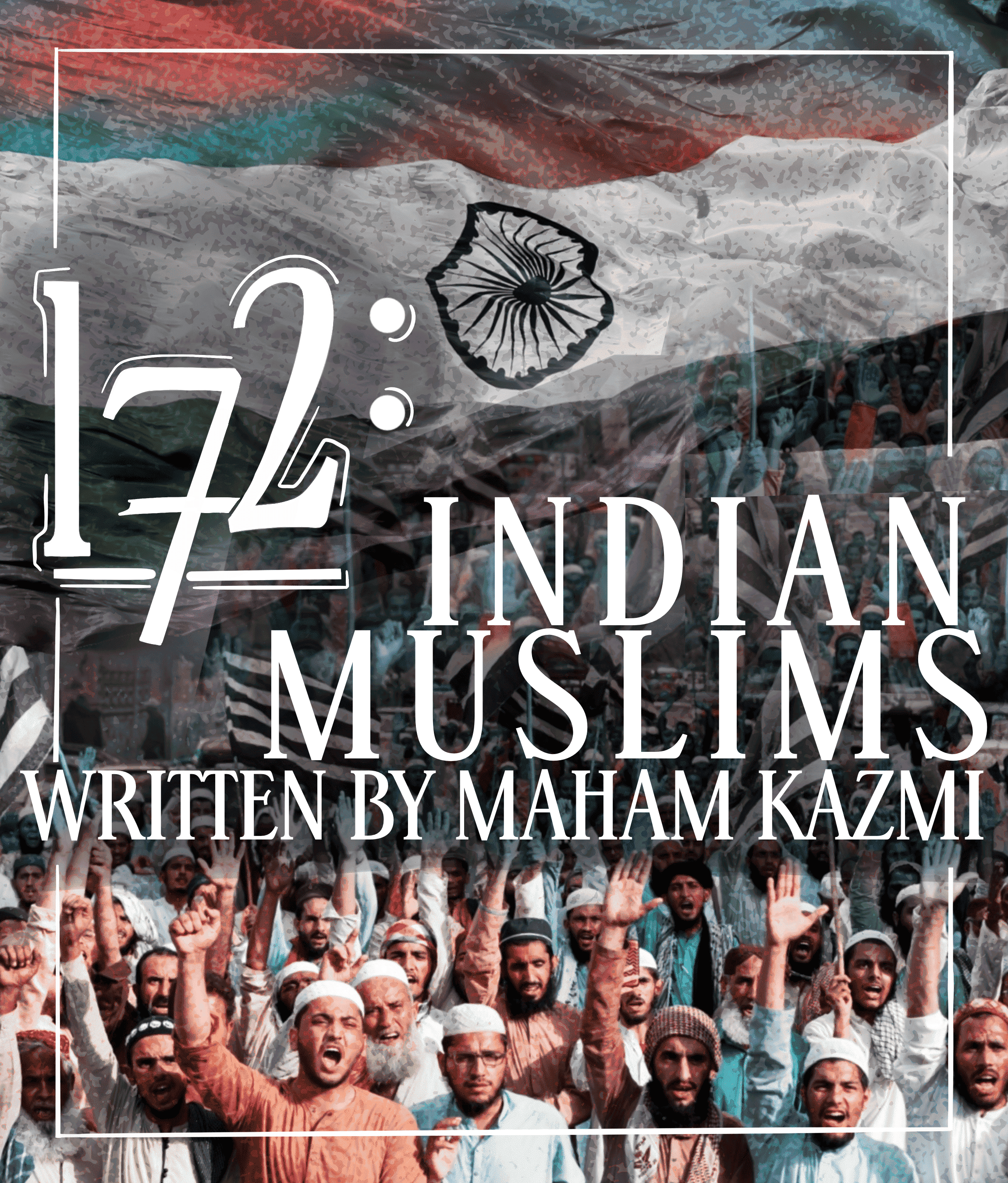During a family stay in New Delhi during my junior year holiday break, I witnessed protests advocating for Islamic equality. I watched as people from the Muslim community gathered in solidarity, chanted, and marched for their rights. Seeing the blur of faces, flags, and signs resurfaced my experiences of alienation as a Muslim woman in America, and those of my peers. An inspirational flame ignited in me, and – naturally – I found myself drawn to the crowd.
The protests were in response to the Citizenship Amendment Act (CAA), which expedited immigration for Hindu, Sikh, Christian, Jain, Buddhist, and Zoroastrian immigrants. The bill painted an illusion of religious freedom to protect persecuted minorities but actively excluded Muslims from the legislation.
A few months prior, several million Muslims were shocked to see their names removed from the National Register of Citizens – all of whom were given a strict timetable by the Indian Government to prove their citizenship or else risk deportation or imprisonment in detention camps.
Given the historical backdrop, Indian Muslims had every right to protest the legislation.
But then came the sirens and shouts. Within moments, everyone was forced back into their homes by the police, and the bustling streets were soon left clear and empty. Failure to heed these warnings placed protesters at risk of being publicly beaten with batons and clubs or, in heartbreaking fashion, taking the lives of teenagers such as Mohammad Sameer and Mohammed Saif. Stumbling back inside my family home, I was shocked by what I had experienced. Watching members from the Muslim community be silenced and subjected to hate and violence infuriated me.
172 million Muslims make up India’s population. 172 million voices are being silenced.
But what fuels this hate? What furthers the “divide” between Muslims and Hindus in India? Throughout its reign in power, the Bharatiya Janata Party has crafted and furthered a false narrative that Muslims do not belong in India. They explicitly highlight differences in culture, religion, identity, and beliefs with an emphasis on an ideology that both groups cannot coexist peacefully. The non-Muslim majority, in some cases, feels threatened and is polarized against this community. The Bhakts, specifically, have resorted to violence to achieve dominance. During the 2020 Delhi violence, mobs would terrorize this minority through the burning of mosques and religious books, as well as using ammunition and spears. “The weapons used showed a clear intent to kill, destroy and terrorize the minority community.”
When Muslim citizens stand up for representation and equal rights, police violence is unleashed. Protestors would be beaten up publicly, and many began to retreat out of fear for their safety. Individuals in power would rather label the Muslims as being “anti-nationalists” or extremists than confront this injustice.
The stories echoed over thousands of miles into the United States take a toll on the identities of Indian Muslims even today.
Through commentary on how fascinating being both an Indian and a Muslim is and the hesitation of disclosing religion out of a fear of alienation as they have been in the motherland, Indian Muslims have accustomed themselves to shaping their identity based on who they’re talking to.
We have become used to commentary on how fascinating being both an Indian and a Muslim is. We have normalized the hesitation of disclosing our religion out of a fear of being alienated, similar to the treatment we have received in the motherland. We have been taught to be careful about the statements we make because standing up for our own rights is controversial. Indian Muslims have accustomed themselves to reshaping their identity based on who they’re talking to.
While the Muslim community in India is being silenced throughout the world, other Muslims across the globe are either unaware or apathetic towards the issue. Should we unite towards justice and basic human rights for this population, change can truly be made. Indian Muslims will no longer have to fear their identity — rather, they can embrace it. The first step towards change is knowledge. Use that knowledge. Use your voice. Pick up a pen and write about the violence and Islamophobia.

